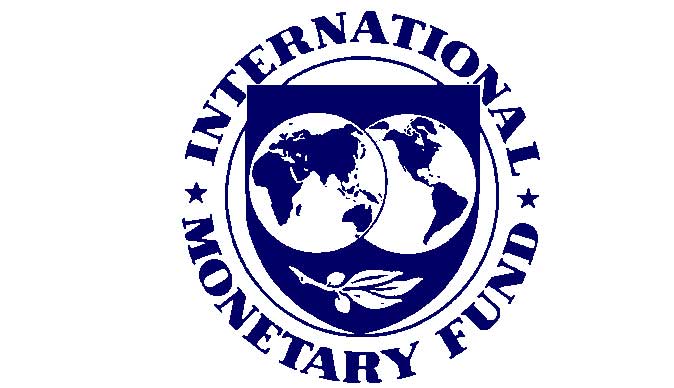Let’s face it, the IMF and the World Bank (WB) have come to exert enormous influence on our public life, and our public mind, probably more than the Nigerian State itself or anything else Nigerian. Hardly any serious person in Nigeria today would argue with this. The question, therefore, is how to explain that influence, especially how these two, as separate from the other United Nations agencies, have come to acquire the most influence on Nigerian public and economic management in recent years. In answer, let me show it
In their own different ways, Nigerian officialdom, media and intellectuals are all obsessed with WB and IMF. Consider the following news headlines in our media culture in just the past few days; “IMF urges Nigeria to regulate crypto trading platforms” (Punch); “IMF cautions Nigeria against CBN Act amendment” (Vanguard); “IMF: At 9.4% in 2023, Nigeria’s tax revenue to GDP ratio among lowest in the world” (TheCable); “IMF projects 24% inflation rate for Nigeria by year-end” (The Guardian); “2024 Article IV consultation: IMF calls for urgent reforms in Nigeria” (Tribune); “IMF harps on governance, macroeconomic stability to attract investments into Nigeria” (Business Day); “Nigeria eyes $2.25bn World Bank loan at 1% interest rate” (Premium Times). World Bank Says FG’s N5,000 Cash Transfer Scheme Had ‘Little Impact’ (Channels TV).
The words on the pages from these random headlines are clear enough, but taken together, what is the real message behind them? The answer is simple: wisdom, warning, and the welfare of our economy all spring from the same external source. Approval or disapproval of anything to do with the Nigerian economy is likewise externally induced or directed. If the WB or IMF says things are good with the economy, then they are. If both or either says things are not good, then they are not. No other voice matters as much, or at all. The particular form of power in play here should be apparent by now: legitimacy. Whether we are aware of it or not, we have handed out legitimacy for the management of our own affairs to external actors.
Yet, the power of legitimacy is only one instance of the hold the IMF/World Bank have come to have on our public mind, and public life. A regular reader of Nigerian mainstream newspapers—the media consumed by our officialdom and intellectuals alike—would find one or the other thing reported about what the WB or the IMF said about Nigeria in the course of a day, or at most a week. By contrast, a regular reader of the New York Times or The Times would struggle to find any mention of the two institutions. We are, in short, dealing with another form of power here, that is, the power of agenda-setting.
- Niger targets revenue from 3m trucks as FG plans tolling system
- 100th anniversary: TotalEnergies to empower 100 African startups
Still, amplifying the views of just one external source about the fate of our own society over and over again in our media and public culture—agenda setting—is only an outcome in this situation, not the consequence. The actual consequence is something by far more pernicious, if subtler: it is what happens when one viewpoint, when one agenda drowns out all else in the news, and goes so uncontested that it becomes the consensus of all. It is what happens when ideas that are generally unfit for our present economic context, and in some cases flatly harmful to it, gain so much currency that they become ‘common sense’, normal, even natural.
The power of agenda-setting, legitimacy and consensus-building are as much important mechanisms of governing a society as is the use of force or the law, and yet, it is these forms of power that the World Bank and IMF wield the most in the management of our own economic affairs, here at home and in our relations with the rest of the world. This is precisely how we arrived in our present moment in Nigerian economic management today, where the government has dug itself into a hole: it cannot as yet find water, it cannot dig deeper, and it cannot get out, a triple tragedy for us all.
Subsidy removal is the only way for the government to get money to plough into education, health and infrastructure and the only way to end the corruption in the subsidy regime. Naira devaluation is the only way to unify our multiple—and harmful—currency exchange markets so that the naira will find its true value. Privatising NEPA and hiking electricity tariffs are the only ways to bring in foreign investment to the energy sector. Partnership with the private sector is the only way to fund infrastructure development in Nigeria. Our debt-to-GDP ratio is still relatively small and there is room to take more loans if we could expand the tax base. Etc. Etc.
These policy ideas, and more, are scarcely suitable for Nigeria’s present economic context. But the World Bank and IMF succeeded in building agenda, legitimacy and consensus around these policies so much that they became a gospel accepted and bandied around by many people in the Nigerian policy space as the only solutions to our ailing economy. I read the policy documents of APC, LP, NNPP and PDP in the run to last year’s elections. All four contain several of these policies to varying degrees. I also interviewed many senior people in the policy space on what the incoming government must do to fix the economy and their views reflected these same policies. Obasanjo, Jonathan and Buhari governments all also supported, implemented or sought to implement these policy ideas in one form or another.
In fact, by the time President Tinubu announced that “subsidy is gone” at his inauguration last year and doubled down on this by his currency devaluation a few days later, he actually thought he was doing not just the right thing, but what his predecessors had lacked the courage and the political will to do. I do not believe President Tinubu deliberately wanted to make Nigerians suffer more than they already were. Rather, he thought the policies would actually solve the problem and bring relief. The president clearly thought that by implementing these policies, the small pieces in the Nigerian economic puzzle would all fall into place, and the economy would kick-off to a great start under his lead.
Now, we all know better. And even he would have been shocked by the results so far and, worse, frustrated by the fact that there appears to be no way out, at least for now. He cannot continue with these policies and run them to their full course, nor can he retract them. In fact, the reader would have noticed that much of the government’s efforts over the past year have been more to contain the damage done by its policy making in the first month in office. But the real question is how did we get to the point of wholeheartedly implementing policies that are unfit for us, or rather, how have policies that are generally unsuitable for our present context become commonsense that all political parties vying for power in the last election pledged them in their manifestos and policy documents?

 Join Daily Trust WhatsApp Community For Quick Access To News and Happenings Around You.
Join Daily Trust WhatsApp Community For Quick Access To News and Happenings Around You.
